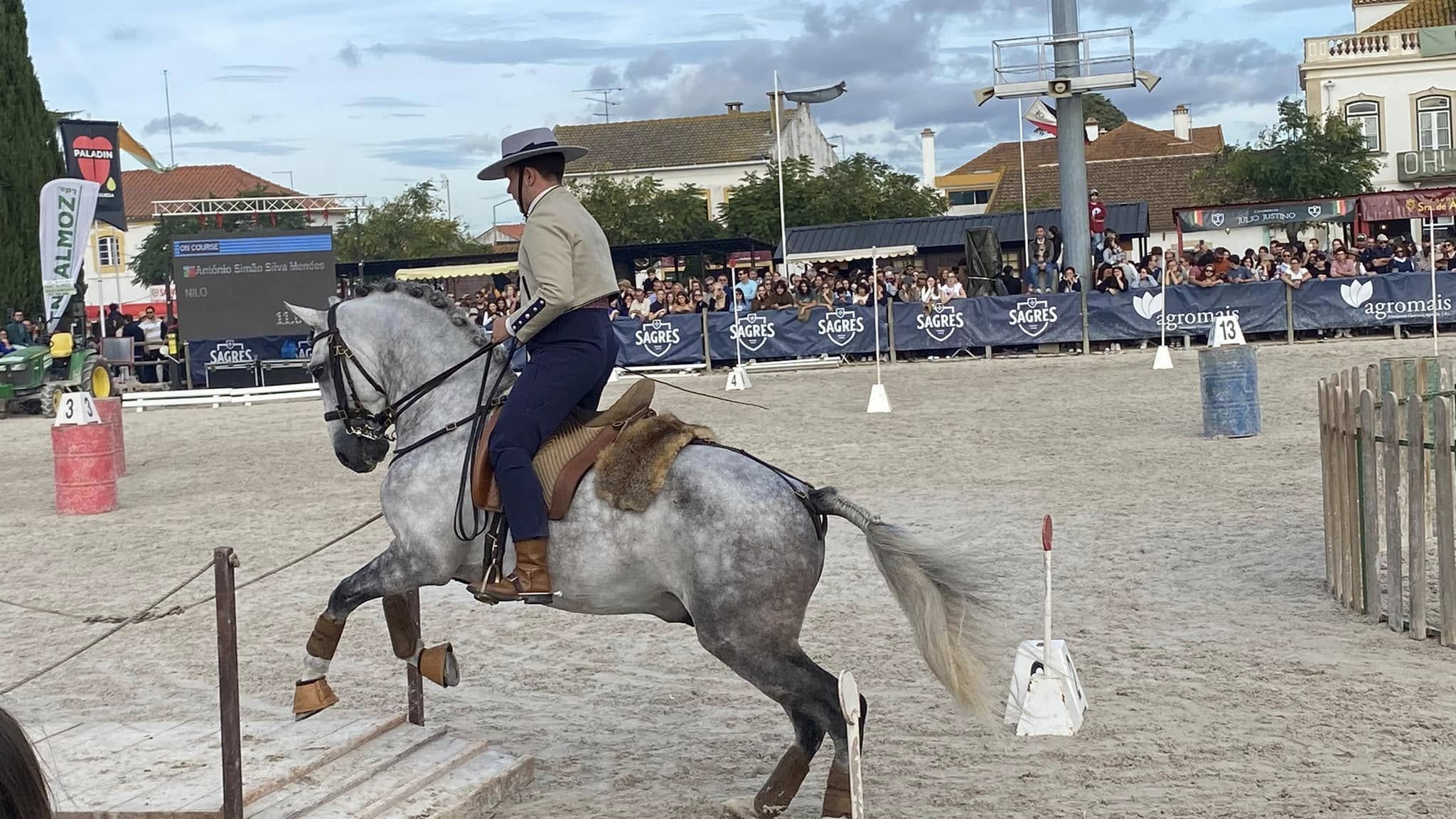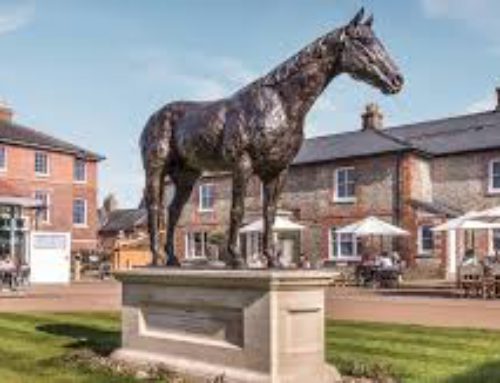When it comes to equestrian travel in Portugal, the country’s rich history and diverse landscapes make it an ideal destination. As a former maritime empire, Portugal’s location on the Atlantic Ocean has influenced its culture and cuisine. The sea plays a significant role in Portuguese gastronomy, with dishes such as salt cod and grilled sardines becoming national favourites.
Starting your equestrian adventure in Lisbon allows you to explore the city’s equestrian heritage while immersing yourself in its vibrant atmosphere. You can visit historical sites such as the Portuguese School of Equestrian Art and the National Carriage Museum.
Portugal is a blend of old-world charm and modern vibrancy. From its stunning and historical architecture to its lively street art scene, Lisbon offers travellers a captivating experience.
One of the highlights of Portugal is the opportunity to immerse yourself in the world of the Purebred Lusitano Horse. This magnificent breed has a rich history dating back thousands of years, has played a significant role in Portuguese culture, and its conformation has changed little over the centuries. Known for its elegance, intelligence, and versatility, the Lusitano Horse is a symbol of national pride.
Originally bred as a war horse and for classical dressage entertaining the nobility, driving, bullfighting, and stock horses. Today, modern Lusitanos are used in many equestrian pursuits, including dressage, jumping, working equitation, and driving. This breed is also used extensively in the entertainment industry, especially in historical settings.
In addition to its equestrian heritage, Portugal boasts breathtaking landscapes that are perfect for exploring horseback. From rolling vineyards and olive groves to rugged coastal cliffs and sandy beaches, there is no shortage of stunning scenery to discover during your travels.
Portugal offers many places for the equestrian to visit, ride, spectate and enjoy.
The Royal Alter Real Horse Stud Farm
It boasts a rich history dating back to 1748, when it was established by King Joao V at Coutada do Arneiro. Spanning across an impressive 800 hectares, this prestigious farm has been dedicated to breeding and nurturing a remarkable herd of horses.
During the 1700’s, the Royal Alter Real Stud Farm meticulously curated a herd primarily composed of Andalusian mares. This deliberate selection aimed to include only the finest specimens were included in the herd, resulting in a lineage of exceptional quality.
Renowned for its commitment to producing horses with impeccable bloodlines, athleticism, and regal grace, the Royal Alter Stud Farm stands as a testament to centuries of equestrian excellence. The farm continues to play a vital role in supplying horses for the Equestrian school in Belem, upholding a tradition of exceptional quality.
In addition to its equestrian pursuits, the Royal Alter Real Stud Farm warmly welcomes tourists, offering an on-site hotel Visitors can partake in guided tours available from Tuesday to Sunday, providing a unique and immersive experience into the world of this historic and distinguished equestrian establishment.
The Portuguese School of Equestrian Art
Stands as a revered Portuguese institution committed to the preservation of the equestrian arts within the rich tapestry of the Portuguese tradition. As one of the distinguished “Big Four,” it holds a prominent position in the equestrian landscape. Situated in Belem, Lisbon,
The history of the Portuguese School of Equestrian Art traces back to the era of Real Picaria, the 18th-century equestrian academy of the Portuguese court. Founded by D. João V, the academy utilised the Picadeiro Real de Belém presently known as the National Coach Museum, as its training location.
The Lusitano horses, all bays, have their origins in the Royal Alter Real Stud Farm. The costumes, harnesses, and accessories worn today are authentic replicas from historical times, aligning seamlessly with tradition. Following Baroque riding exercises, the school adheres to the techniques and guidelines of the Spanish Riding School in Vienna, Austria-an enduring Renaissance academy.
Established in 1979, the school now resides at the Henrique Calado Riding School on Calçada da Ajuda in Belém. It actively engages the public through presentations, shows, and training sessions. Additionally, the school participates in official ceremonies, both domestically and internationally. Recognised for its role in promoting the Lusitano Horse and, more significantly, Portuguese equestrian culture, and tradition, the Portuguese School of Equestrian Art stands as a cornerstone in the preservation and dissemination of this rich heritage.
The National Coach Museum
The National Coach Museum in Belem has one of the finest collections of historical carriages in the world and is one of the most frequently visited museums in the city. The museum houses a unique collection of vehicles from the 17th, 18th, and 19th centuries, including coaches, berlins, sedan chairs, and carriages. The former museum was in the original riding hall and can also be visited but has a much smaller collection of carriages.
Major Equestrian events in Portugal
Portugal’s most popular horse sports are dressage, jumping, endurance, and working equitation, while other equestrian sports are also popular. FEI competitions and local Lusitano horse breed festivals are held throughout the year. The most popular horse event in Portugal is the Golega Horse Fair.
The Golega National Horse Fair is held annually over ten days in Golega every November, and this is where the Lusitano breeders come to showcase their horses.
One of the largest horse events in Portugal with over 250,000 people attending. Golega’s small town is normally a ghost town at other times of the year. It is the most important competition for the Lusitano breed with breed classes and working equitation It is a unique experience with horses and riders wearing their traditional riding wear riding around the manga with competition happening in the middle with the arena packed with competition. Some of the highlights include the Final of the ‘Maestros de la Vaquera’ Cup, dressage and show jumping, vaulting demonstrations, natural dressage, entertainment, and so on. As with all these events, the shopping village is extensive. Horses are everywhere in the bars in the evening, and the roasting of chestnuts creates a smoky atmosphere. It is an event that you should add to your bucket list.
Changing of the Horse Guards
Held once a month on the 3rd Sunday at 11 am at Belém National Palace, the residence of the President of Portugal. Enjoy symbolic moments like the Guard’s salute and shift change, along with the unique “Brinco da Banda” performance.
Other Festivals
Portugal has many other equestrian horse festivities, where riders can be seen in typical costumes riding magnificent Lusitano horses.
Each June, the picturesque town of Ponte de Lima, just a half-hour’s drive north of Porto, hosts the Ponte de Lima Horse Fair. The showground boasts excellent facilities and offers a diverse array of equine entertainment. Visitors can watch national-level dressage, Lusitano show classes, top-class working equitation, carriage driving, and captivating displays.
The main show for the purebred Lusitano horse breeders is the International Lusitano Festival held around June at the Hipodromo Manuel Possolo, in Cascais, 30 min from Lisbon. Events include in hand and ride classes, dressage, working equitation and displays. It is an important event for breeders to present their young horses.
Not nearly as busy as the Golega Horse Fair in November. The Expoégua – Mares Show is usually held in Golega during the second week of May. This is where you can see Lusitano Mares, foals, and yearling colts are shown for their conformation and gaits in the central arena. Situated around the manga are the breeder’s ‘Casettas,’ here you can meet the breeders. Working equitation and dressage are held in the new competition arenas a 15-minute walk from the main area.
Riding and Dressage Holidays
These holidays have gained popularity in Portugal, providing an excellent opportunity to blend vacation with the joy of horse riding. Whether you are a seasoned rider seeking new adventures or a novice eager to explore something different, Portugal offers options for every skill level.
Local equestrian centres in Portugal extend a variety of experiences, ranging from dressage lessons up to the Grand Prix level to scenic trails and engaging working equitation activities. What sets these experiences apart is their adaptability to your individual riding proficiency, ensuring a secure and pleasurable adventure for all participants.
Portugal, with its rich cultural tapestry and diverse landscapes, offers much more than just equestrian delights. This introduction only scratches the surface of the wonders this country has to offer, and I hope it sparks your interest in considering Portugal as your next travel destination.
Snaffle Travel offers riding holidays to Portugal. Check out our riding holiday on our website www.snaffletravel.com.au











